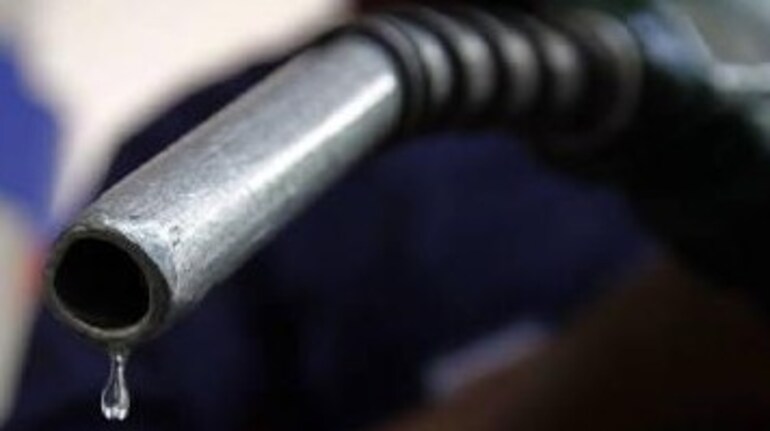



Moneycontrol Bureau
Much has been made of the way crude prices have fallen over the past year and a half and their sensitivity to local automotive fuel prices. International oil prices hit over a 10-year low, prompting many in the social media to compare petrol and diesel prices to those prevalent back in 2004, when crude prices were hovering at similar levels.
Even as it will not be fair to compare prices to regulated (as it existed in 2004) versus deregulated fuel (petrol prices were deregulated in 2010 while diesel was freed from government control in October 2014), attention has also been focused on the way the central government has repeatedly hiked excise duty on both petrol and diesel.
From a peak of about USD 110 per barrel in June 2014, crude prices have fallen about 67 percent while over the same period, diesel and petrol prices have fallen 15 and 18 percent, respectively, data from the PPAC shows.
According to a recent Business Standard piece, the government is set to make a windfall gain of about Rs 90,000 crore, calculated from the quantum of excise hikes and typical annual consumption of fuel in India. The price cut is set to result in similar savings from consumers, on an annualized basis.
Opposition parties such as the Congress have accused the government of "profiteering" from the oil fall but Finance Minister Arun Jaitley has made clear that the amounts raised through excise duty hike would be used to boost the country's creaky infrastructure.
Given the government's own tight fiscal position, it is caught in a hard place: in a bid to maintain its fiscal deficit target, it can choose to either resort to savage cuts to growth-boosting plan spending, as has been the practice of governments for years, or raise additional resources to meet its Budgetary shortfall. That it has chosen to do the latter reflects well on its economic policy.
There is a flip side though. The government's decision to reap much of the benefits through higher excise duty on diesel and petrol has not been without costs.
"This has limited the boost to consumption and purchasing power that could have been achieved via reduced freight costs and the eventual decline in cost of goods," says a report by Dun & Bradstreet.
Discover the latest Business News, Sensex, and Nifty updates. Obtain Personal Finance insights, tax queries, and expert opinions on Moneycontrol or download the Moneycontrol App to stay updated!
Find the best of Al News in one place, specially curated for you every weekend.
Stay on top of the latest tech trends and biggest startup news.